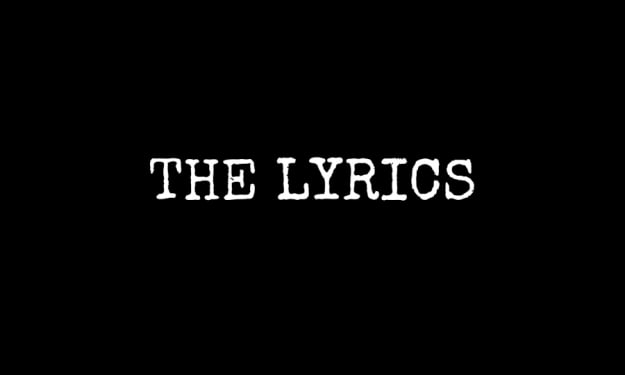Musician as Thinker
A Look at My Musical Career and the Existential Dread That Comes with It

Bear with me, I don't write nearly enough and tend to ramble as thoughts come to me. It'll be a pleasant surprise to find a unifying or guiding thread to my little story.
From the tender age of 5, I had no concept of playing music as an occupation. The coolest I had thought of at the time was becoming the principal of my school. I thought I was a brave enough child to become a policeman or a doctor. A musician? Hardly. Never mind that I couldn't even identify the string instruments in recordings or songs. I called it the "soft sound."
Skip ahead, it's fourth grade. These new people come to my classroom, showing us violins, "cellos" and something called a "viola." I was immediately transfixed by the violin. And they said I could learn to play it?! I was astounded and excited. My intellect leaped for joy — while I enjoyed school, I was otherwise unoccupied when not in class.
I immediately jumped into a self-education of classical music. The "greatest composers ever" were Mozart and Beethoven. The Three B's. But then there was that guy who wrote something to do with Romeo and Juliet? The world was endless. Wherever I had read about Beethoven, it must've stuck. He has been my guiding light, my kindred spirit, and my prophet of Western musical beauty ever since.
Middle school! Arguably the worst time of your life (other than the dull-drums of adulthood). I was by then passionately invested in classical music, though I still maintained my reputation as a die-hard bookworm, history nerd, and liberal progressive (a somewhat vague way to stay in the closet). My parents couldn't be more thrilled about my zeal for the violin. At this point I was still disdainful of the viola, but I think that had more to do with user-error rather than the instrument itself.
High school, what a time. Argued to be among the best years of your life. As a friend of mine said in response when she spoke at graduation: "Well then the rest of my life will probably be absolute shit." I was proud of my academic standing, musical curiosity. See the thing is, I had a Yahama keyboard that could record 5 (read it, 5) tracks while I played another along with them. I was able to dissect pieces and study every single part and aspect. Needless to say, music at school was getting frustrating, stagnant and in a way sad for me to continue with. I was always the leader of the orchestra and always brought a seriousness that was lost on those playing for "art elective credits."
But, as I was going through, I realized a few things. One, I was gay. I had known since the age of 10, but I finally admitted to myself in high school. I was always holding back part of what I defined as me. But music was becoming the all-encompassing outlet for my angst, and I was simply comfortable keeping it that way. Two, I wanted to pursue studies in literature — I had an amazing teacher who imbued a wonder for the Ancients (Greeks, Romans, unfortunately didn't get to the rest of the world...), a love of psychology in literature, and finding creative outlets to express myself. Three, I wanted to pursue music professionally. I had only a few teachers to look up to for inspiration, but that alone convinced me. I loved music so much, I couldn't imagine not doing it day-in-day-out. As far as I knew, I would just need to practice a LOT and then I'd be in an orchestra some day. Youth Symphony was a great training ground for that and I cherished every early Saturday morning.
Whispers began then. Oh, you want to be an artist? A musician? Liberal arts degree? Guess you'll be starving and broke! Haha. While I had engaged in that sort of self-deprecating humor, I was beginning to steel myself against such antagonism. I was dedicated, and that's all that mattered. But with every autobiographical account, the cliché of 20-20 hindsight rears its ugly head. High school wasn't preparing me for college, wasn't even preparing me to be an adult (one semester of "Business" or "Foods" does not an independent adult make), let alone preparing me to be a professional musician.
Senior year is wrapping up, I'm almost done! I can look back and be proud to have led the orchestra, joined the cross country team, and participated in various art clubs throughout the years. I felt well-rounded, in the way that I wanted. College applications took up so much of my life, I will always laugh and be astounded. I took up studying with a professor at Seattle University, who so persuasively got me to apply and enroll there. I felt myself walking down the hallway. I just left the high school part. I was walking up to a glittering arch that promised University. These were the promised "best years of my life." But the second I stepped through that door, my world crashed. No other way to say it. My professor changed markedly in lessons and became very negative, holding over my head the sheer amount of money and effort that was at stake for myself and others to simply be there. He was never happy with my progress, accusing me of blatant disrespect and laziness. Ah, but college, if nothing else, reveals how rampant depression is with this generation.
I was in the University Honors Program, a somewhat elitist curriculum that travels the Western timeline of history, literature, and philosophy. It was a main reason I came to the school and I was thrilled to truly expand my Renaissance-man-ness. But it was a lot of work and music took a backseat to my studies. Sure, chamber music was exactly what I loved to do, but I was limited by the skill levels and range of my groups, the repertoire, and my professor's temperament (yes, same guy — it was a very small program).
The end of freshman year of college: I get a call from my mom. My grandma, my closest friend beside my parents, was going into hospice. She had been diagnosed with lung cancer a few months previously. I can still remember where I was: a small study room on the top floor of one of the dorms. It was 8pm and I was struggling to write a 12-page research paper about the first opera ever written (self-imposed challenge to discuss Renaissance history). Neither of us choked up on the phone, but afterwards I broke. I cried for a few hours. I was devastated, enraged, lost. This was my first brush with death, concerning a close loved one. I couldn't imagine a world without Nanny. I stayed up all night writing that damned paper.
The next week, I trudged to my professor's office for my lesson. He caught me outside and wanted to have my lesson there, outside. It was spring quarter and it had been a beautiful day. I was barely keeping from crying in public and he kept pressing it. I eventually sternly said no and walked to his office to get ready. He came in, noticed my somber attitude and finally asked what was wrong. Through tears I told what was up. Then, misguidedly, he told me the story of his battle with leukemia in high school. At this point, I was very unhappy studying with him and this nailed the coffin shut. I have never felt more despair for myself and rage towards another person in a single moment since. I felt a new shame build — for continuing to pursue music seriously in light of my grandma and grandpa being skeptical, yet still willing to fund my studies. I was utterly beaten in spirit.
Through the next years at undergrad, I realized my calling was for the viola (and a different professor). I switched my junior year and I lost tons of stress, emotional or otherwise. I was ready to dive in and pick apart my playing. I was serious, yet fun-loving and I was in my first serious relationship. Things couldn't be better. And yet...
My classes were ramping up their "applicable" knowledge and I was more and more overwhelmed by the limited professional opportunities for musicians, and in Seattle specifically. Non-profits, collaborations, teaching, etc. All preached to me by those traditionally successful in the music world. I am NOT saying I felt jaded or that there was no hope for my generation. But my curriculum was at odds with what it was telling me. I have tried teaching. I really have. But I very much do not enjoy it. Yet, when I'm faced with a lack of job opportunities in an orchestra or as a soloist, my professors constantly pushed how important teaching was. I'm sure it is, but I would either do it reluctantly (and we all know how miserable both teacher and student are if the teacher doesn't want to be there) or I'd want to invest my entirety of musical thought into teaching. It's such an important aspect of the the classical music world, without it the industry would die and its place in our culture would diminish.
Where I'm at now: Playing with my community orchestra, working retail jobs, practicing or playing for fun when I can, and writing down my thoughts at night, thoroughly independent yet miserable. I jumped from musical academia to suburban mundane life. I have never been a boot-licker and the idea of schmoozing (or even worse!) to get a job in the music industry is exhausting and saddening to me. But, I am committed to my instrument, to that passion that has driven me since 9 years old. I am driven by the promise of being able to interact with many more musicians. I'm not one to talk about regrets (at least with other people), but I do regret how I was overwhelmed and saddened rather than emboldened. Is there a particular mental health that comes with being a musician? Can I step up to that challenge?
About the Creator
Grant Hanner
Grant grew up in the Seattle area and plays violin, viola, and piano. He is currently pursuing a Master's in String Pedagogy and Performance. He is an avid reader, knitter, and part-time bee-keeper with his partners, Will and James.






Comments
Grant Hanner is not accepting comments at the moment
Want to show your support? Send them a one-off tip.